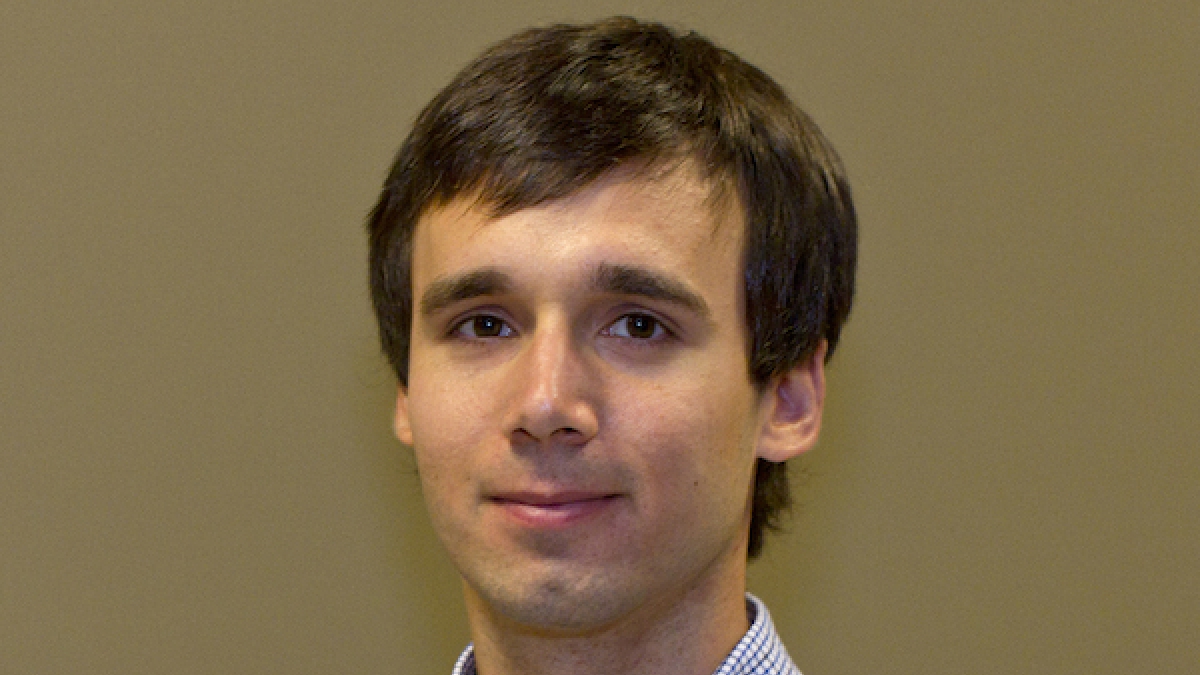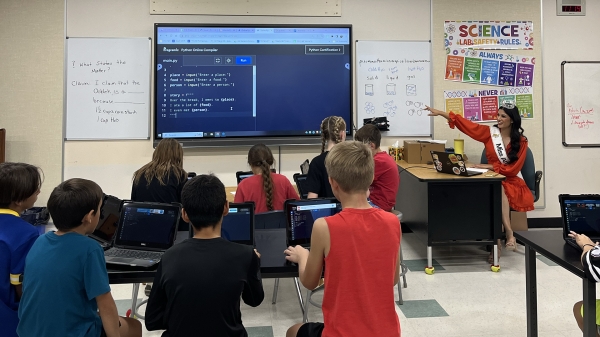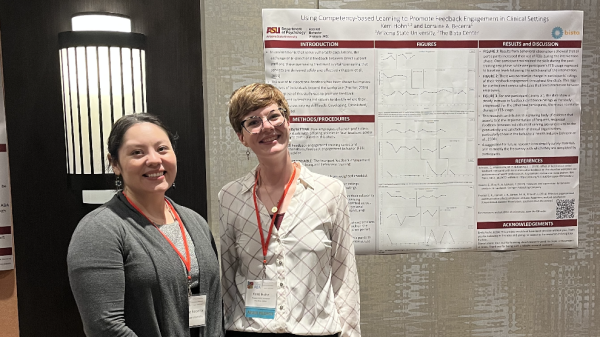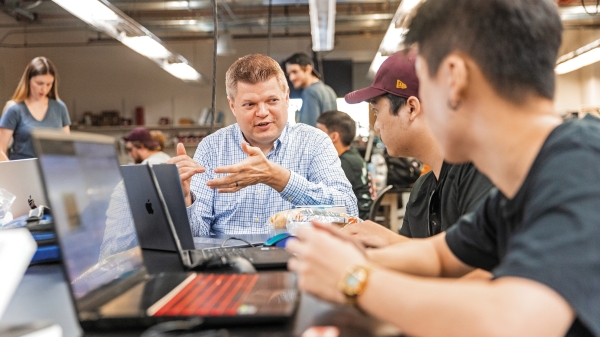ASU engineer seeks to develop better plastics, faster

Jay Oswald, assistant professor of mechanical engineering
Plastics are everywhere. They’re relatively strong, inexpensive, easy to manufacture and generally resistant to water and other chemicals.
Plastic polymer fibers can exceed high-strength steel in strength-to-weight ratios, and they can get even better, says Jay Oswald, an assistant professor of mechanical engineering in Arizona State University’s Ira A. Fulton Schools of Engineering. That is, if we can get around limitations in the materials development process.
“The rate at which we can make these improvements is limited by the current understanding of the relationships linking the chemistry, processing, structure and physical properties of plastics,” Oswald says.
Current methods take an empirical approach, with progress in discovering improved chemistry and material processes taking 10 to 20 years.
Oswald is developing models to overcome these roadblocks to progress as part of a five-year, $500,000 National Science Foundation CAREER Award project, “Novel Coarse-Grained Simulations to Study Relationships Linking Morphology and Plastic Resistance in Semi-Crystalline Polymers.”
“We are developing new models that take into consideration the arrangement of the long-chain molecules that make up polymers to build a new understanding of how the small structural details of these materials affects their engineering properties, such as strength and toughness, thus allowing for rapid, computer-guided design of better plastics,” said Oswald, a faculty member in the School for Engineering of Matter, Transport and Energy, one of the six Fulton Schools.
Presently, simulations for molecular details only take into account billionths of a second and billionths of a meter, limiting them to very few applications. Oswald is finding ways to increase the scope of these simulations.
“We are developing new ways to combine and condense information from very detailed, fine-scale simulations into models that are orders of magnitude more computationally efficient in order to connect how details at the molecular scale influence properties of plastics at time and length scales relevant to many practical engineering problems, such as making cars safer or improving protective gear for police and military forces,” Oswald said.
The capabilities of Oswald’s research group are further extended by the opportunities for collaborative and interdisciplinary research from ASU and the Fulton Schools.
“ASU’s commitment to investing in research infrastructure, especially high-performance computing, is instrumental in making this research possible,” Oswald said.
Advancing the capabilities of plastics is an area of research with much to be gained in knowledge, job growth and revenue for industry.
“The plastics industry is one of the few sectors in the United States' economy that enjoys a trade surplus,” Oswald said. “However, to remain competitive, the country must maintain its scientific leadership in polymer science, which entails promoting scientific discovery of new knowledge, developing innovative approaches to designing better materials, and maintaining a pipeline to feed the plastics industry with highly trained engineers and scientists.”
His NSF CAREER Award-funded research will combine the important research in polymer science with educational and outreach efforts to enable the nation to meet its workforce needs.
More Science and technology

Miss Arizona, computer science major wants to inspire children to combine code and creativity
Editor’s note: This story is part of a series of profiles of notable spring 2024 graduates. “It’s bittersweet.” That’s how…

ASU applied behavior analysis program recognized in Four Corners region
Helping students with learning disabilities succeed in school and modeling effective communication skills are just two examples…

Redefining engineering education at West Valley campus
Editor's note: This story originally appeared in the summer 2024 issue of ASU Thrive magazine. What makes the School of…